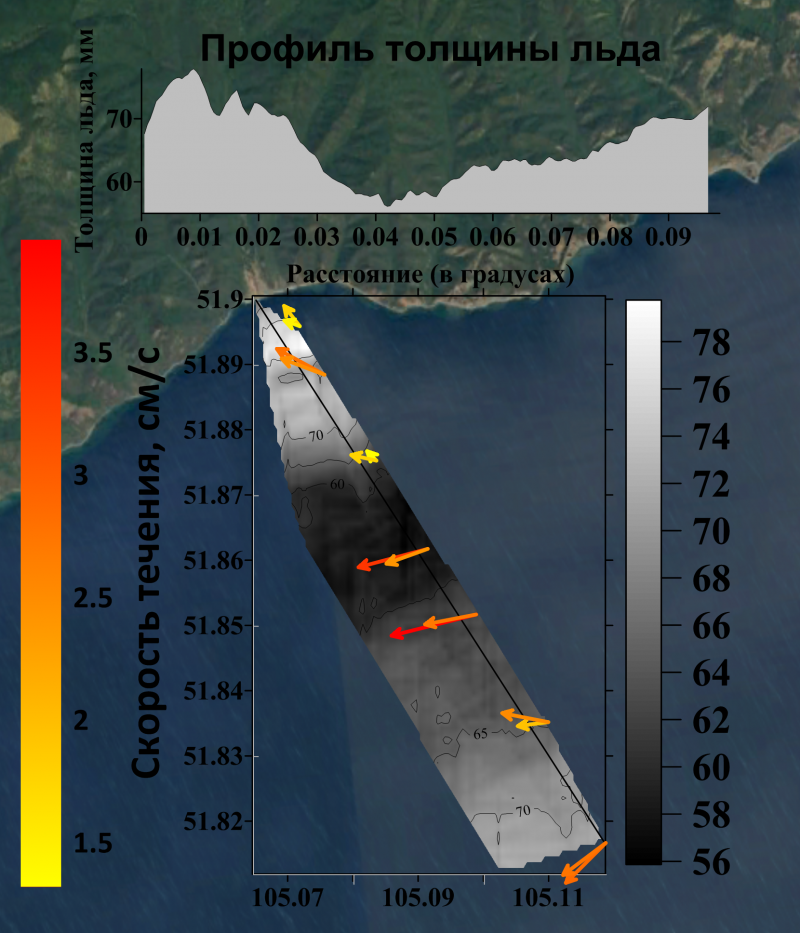Expedition on the ice of Lake Baikal, January 30-March 27, 2020
The expedition within the framework of the program “Assessment and Forecast of Ecological State of Lake Baikal and Adjacent Territories under Conditions of Anthropogenic Impact and Climate Change” was carried out from January 30 to March 27, 2020, in Southern Baikal.
The aim of the expedition was the measurement of hydrophysical and hydrochemical parameters in the water area of Southern Baikal at the standard sections, Marituy-Solzan, Listvyanka-Tankkhoy, and Kadilny-Mishikha, to continue annual monitoring for the study of biotic and abiotic components in the ecosystem of Lake Baikal.
At the initial stage of the expedition (January 30-31), ice reconnaissance was carried out near the Listvyanka settlement – Bolshiye Koty settlement: ice thickness was measured and the location of ice cracks was mapped. When the ice road was opened in the Maloye More Strait, an ice thickness gauge was installed, which allows real-time monitoring of the growth (melting) of the ice cover. Along the Olkhon Island coast near the Maloye More Strait, reconnaissance of the ice structures “mounds” was carried out. From February 20 to February 23, the investigations were carried out at the Marituy-Solzan section and in the area of the manifestation of the ring structure near the Kultuk settlement. From March 26 to March 29, the investigations were carried out at the sections Listvyanka-Tankhoy and Kadilny-Mishikha. On March 4, an ice camp was organized in 7 km from Beryozovy Cape to conduct complex experiments and monitor the under-ice layer, including diurnal stations to study the effect of illumination on plankton migration. At the section from the Institute’s research station in the Bolshiye Koty settlement, the thickness of the ice in motion was continuously measured using a Pikor-Lyod ice thickness gauge with simultaneous estimation of flow velocities: in the zone with high flow velocities, ice thickness reduces. On the pier of the Institute’s research station in the Bolshiye Koty settlement, a new mast was installed for the hydrometeorological post.




























